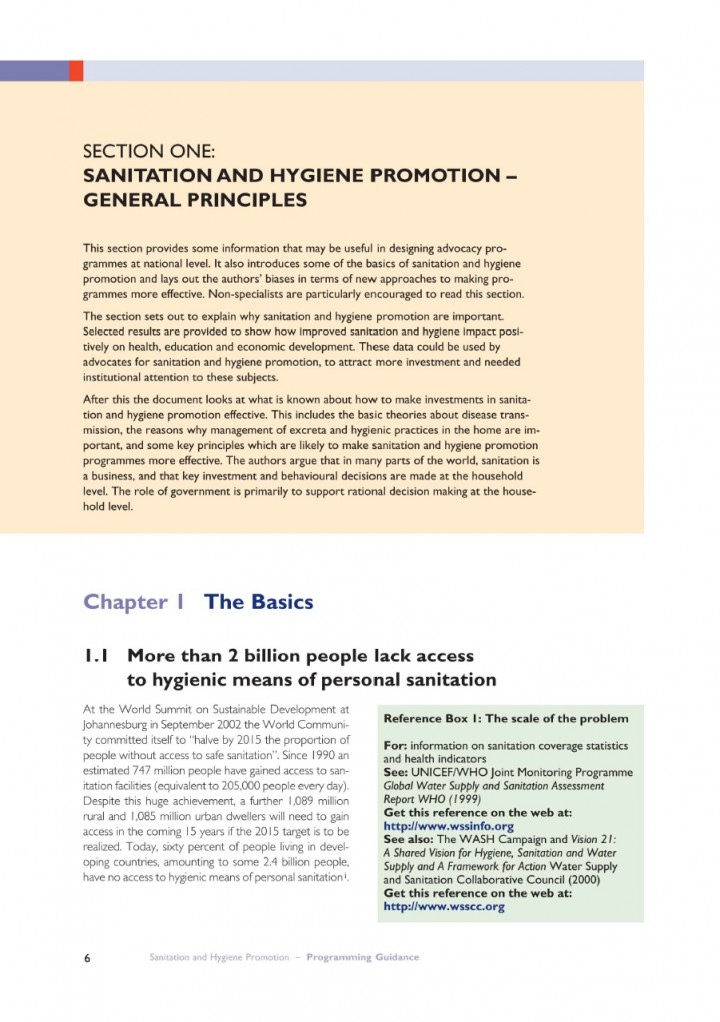
Published in: 2005
Pages: 12
Publisher:
WHO
Author:
WHO
Uploaded by:
SuSanA Admin
Partner profile:
common upload
1450 Views
39 Downloads
This section provides some information that may be useful in designing advocacy programmes at national level. It also introduces some of the basics of sanitation and hygiene promotion and lays out the authors’ biases in terms of new approaches to making programmes more effective. Non-specialists are particularly encouraged to read this section. The section sets out to explain why sanitation and hygiene promotion are important. Selected results are provided to show how improved sanitation and hygiene impact positively on health, education and economic development. These data could be used by advocates for sanitation and hygiene promotion, to attract more investment and needed institutional attention to these subjects. After this the document looks at what is known about how to make investments in sanitation and hygiene promotion effective. This includes the basic theories about disease transmission, the reasons why management of excreta and hygienic practices in the home are important, and some key principles which are likely to make sanitation and hygiene promotion programmes more effective. The authors argue that in many parts of the world, sanitation is a business, and that key investment and behavioural decisions are made at the household level. The role of government is primarily to support rational decision making at the household level.
Bibliographic information
WHO (2005). Sanitation and Hygiene Promotion - General Principles - Section One. WHO
Filter tags
English Guidelines and manuals















